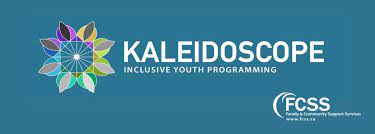Current Temperature
17.1°C
Kaleidoscope’s online programming includes youth in annual NaNoWriMo event
Posted on November 2, 2021 by Sunny South News
By Erika Mathieu
Sunny South News
National novel writing month, or NaNoWriMo for short, is a yearly challenge where writers attempt to finish an entire novel during the month of November. It’s an exciting time of year and signifies a sense of community among those who participate in the challenge. Every year aspiring, poets, novelists, and researchers meet offline or virtually in writing groups aimed to offer support and accountability for writers to reach their goals within the one-month deadline.
These groups can take place in online forums, zoom calls, or in-person writing groups. The act of writing for many creatives is often a solitary experience, at least in terms of the process itself. Even though WriMo-ers may be working on unique projects, there is a sense of collectivity in participating with the support of a group.
Jamie Lewis, the youth inclusion project coordinator with Family & Community Support Services (FCSS), said Kaleidoscope’s online programming is taking on the NaNoWriMo month during the month of November and allows the opportunities for young people to engage with like-minded literature lovers in online groups meetings. The 50,000-word count goal can sound like a huge undertaking for a lot of people as it works out to approximately 1,650 words per day. This isn’t necessarily feasible for a lot of young writers. The parent organization to NaNoWriMo also runs a program catered to youth ages 13-18.
Lewis said the club, “provides awesome online resources for young people and allows them to set their own goals for the month, rather than shooting for the 50,000-word goal right off the bat. Working off this model allows participants to choose goals that are feasible and exciting for them.”
The club, designed to help youth engage in the act of writing itself, motivates participants with the opportunity to share their work and get feedback on their projects, an invaluable part of the writing process. Additionally, Lewis said participants, “have friends within the writing group, working together, facing the same challenges and cultivating the same determination. Encouraging participants to share what they’ve been writing solidifies these relationships even more; I am always moved by how supportive KYWC members are of each other’s work. They are huge cheerleaders for each other. In the end, this community, whether global or local, makes it so much easier to sit down and do that writing on the days when it’s hard—because you know you have people holding you accountable and ready to celebrate your success.”
Although this is the first time Kaleidoscope online programming through FCSS has offered NaNoWriMo programming during November, a more relaxed relaxed summertime program took place in July with great success.
“All our youth met their writing goals and produced some amazing work, so we’re very excited to see what everyone creates this month,” said Lewis.
Prizes and socializing can help re-contextualize the act of writing, shifting it from a rigid, lonely practice toward a process which acknowledges individual talents and milestones, while providing a creative outlet for some of the more isolating challenges of growing up and existing as a young person with intersecting identities.
When asked why she thinks these are important factors for young writers specifically, Lewis said, “adding prizes to the mix validates the level of pride that these participants should be feeling for their accomplishments, recognizing all of their efforts and giving them an opportunity to celebrate themselves. It can be so easy in today’s world to feel the pressure to produce something the ‘right’ way, with some sort of financial goal in mind.”
In this way, the group prioritizes writers meeting their own goals and improving upon their skills, rather than hitting a rigid word count or striving to create solely for monetary gain.
Lewis also pointed to utilizing language as a creative medium for participants to explore aspects of their identities. They said, “Being a young person is often isolating, especially if one has interests and parts of their identity or experiences that are different than those they see at school or in their community, [and] allows them to meet likeminded people and realize they’re not alone […] it’s such a meaningful way to build a really deep sense of community and connection across our service area.”
Writing can be an isolating and solitary activity, but NaNoWriMo is a collective writing project even if individuals are working on distinct pieces. The on-going pandemic has limited in-person programming. Even though writers aren’t meeting in a physical space to write collectively, there is a sense of writers coming together, rather than creating their stories in isolation. Lewis said, “I think one of the things that I found most exciting about NaNo when I started as a pre-teen is that I was participating in a challenge alongside over 100,000 people around the world. It’s so exciting to know that you’re all in it together, facing the same highs and lows. That feeling absolutely transfers to the club.” They continued, “NaNo is far from lonely if you’re willing to make the leap and put yourself out there.”
Leave a Reply
You must be logged in to post a comment.

